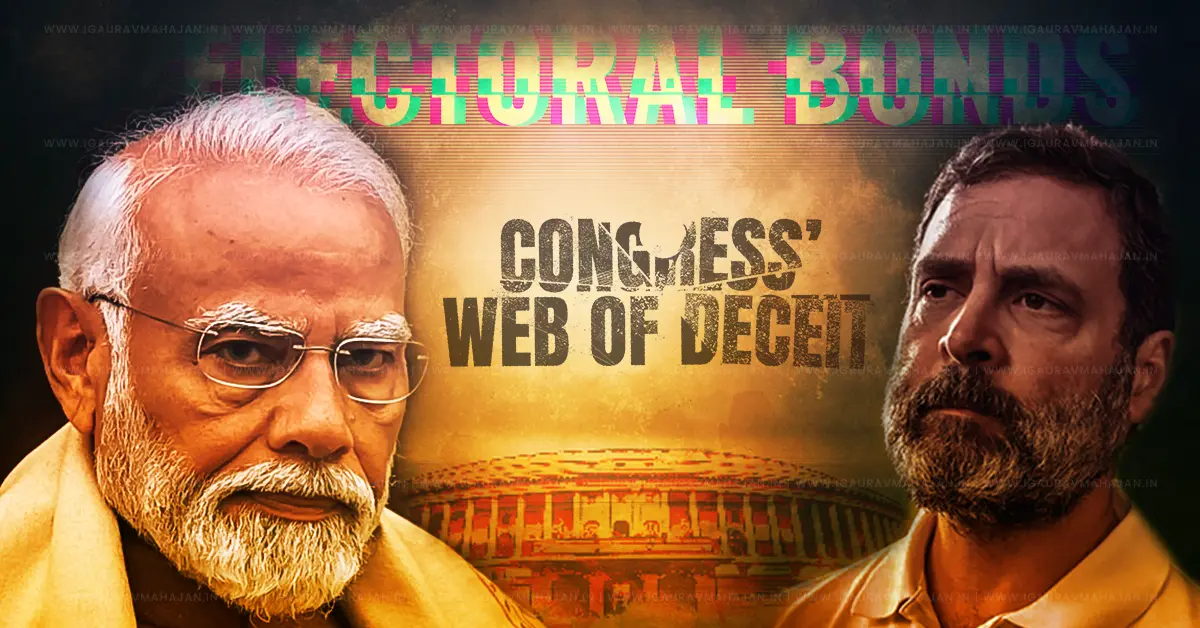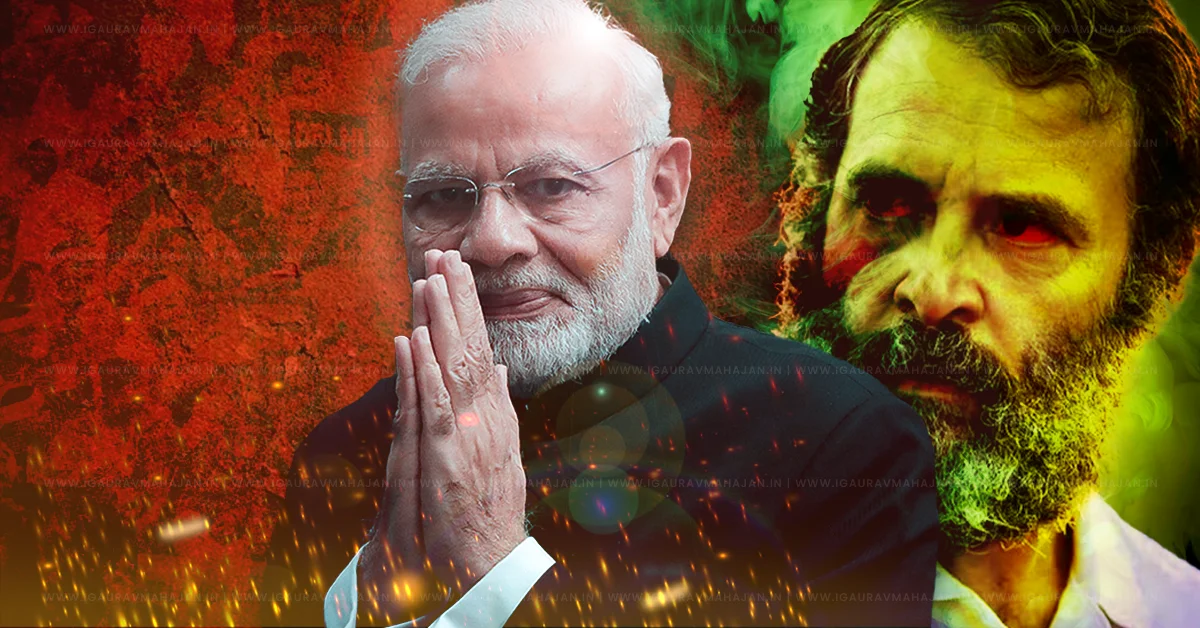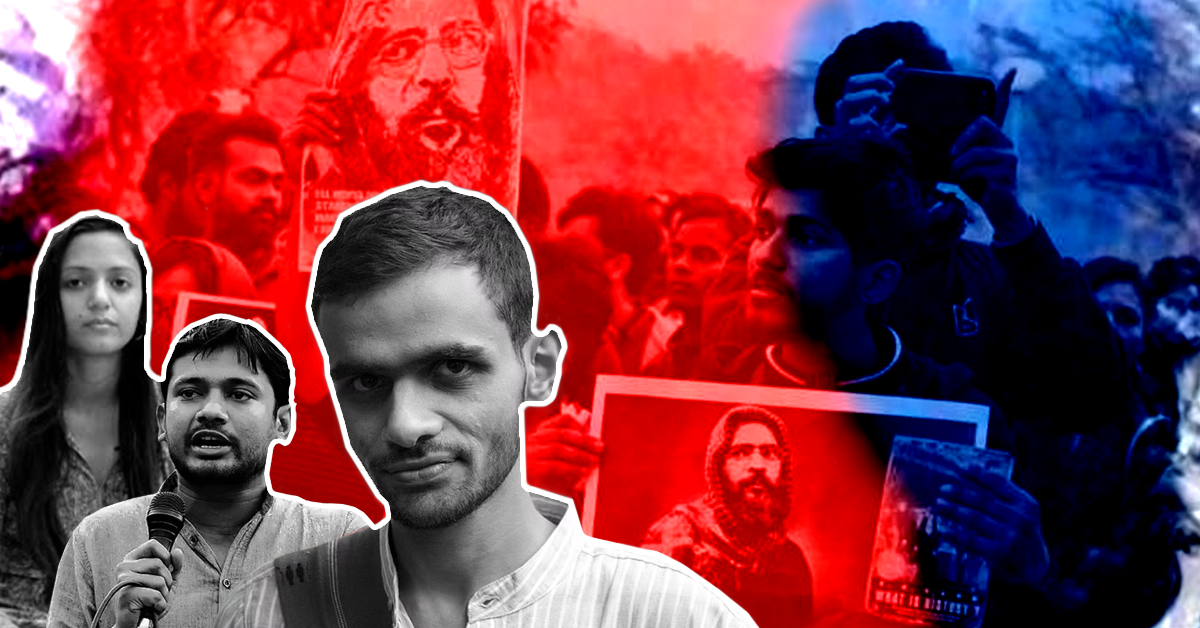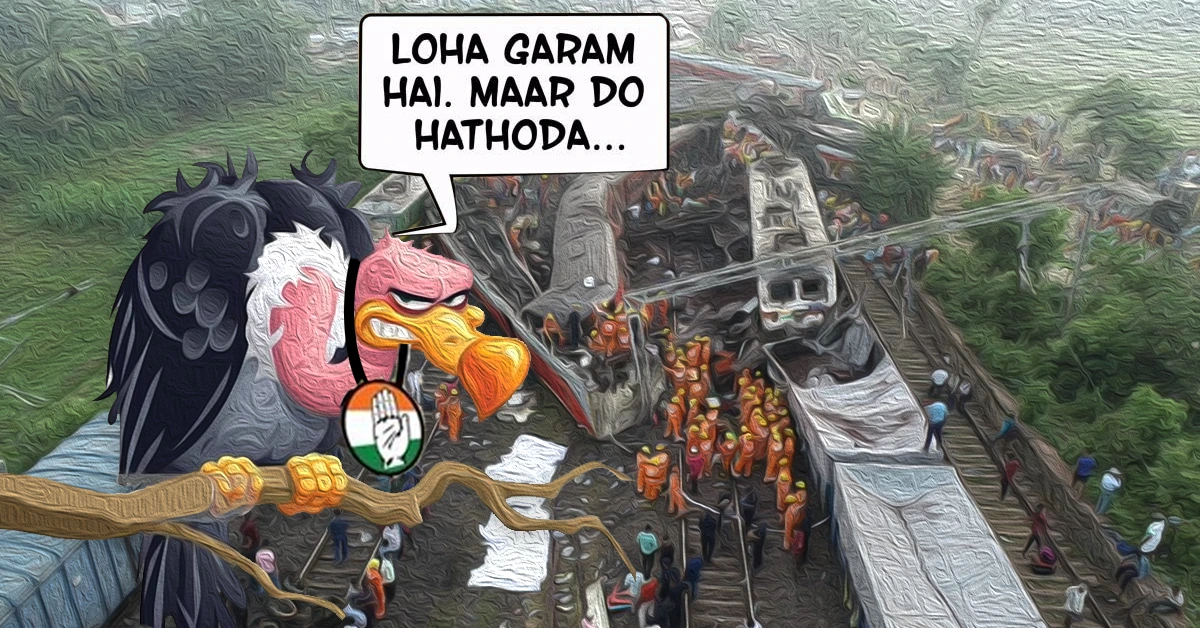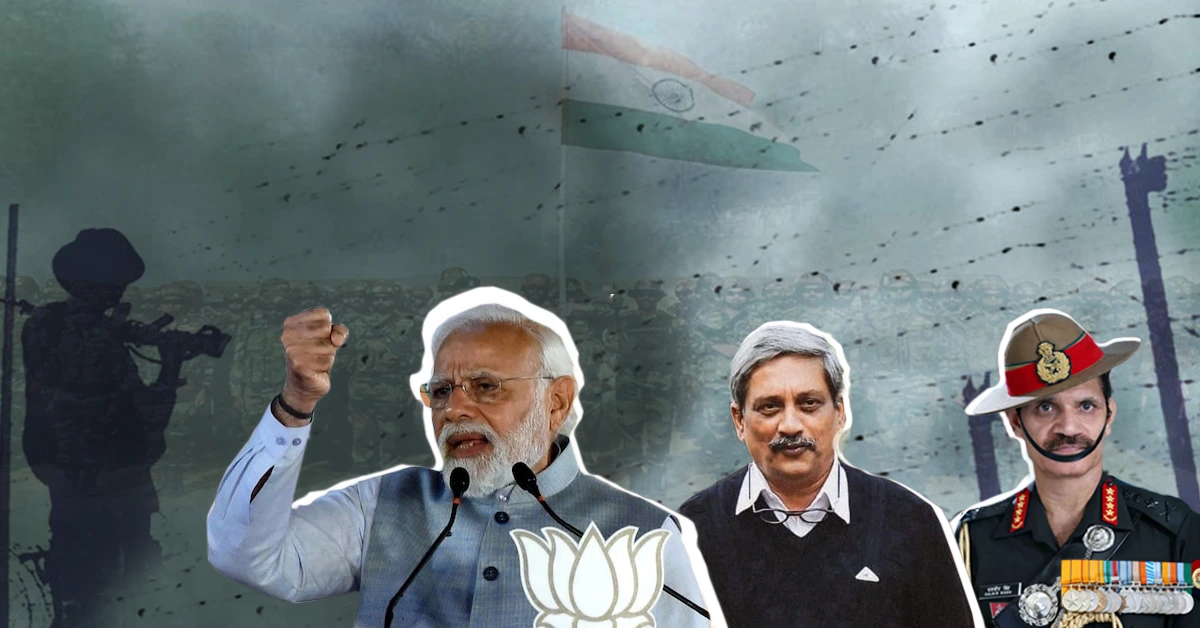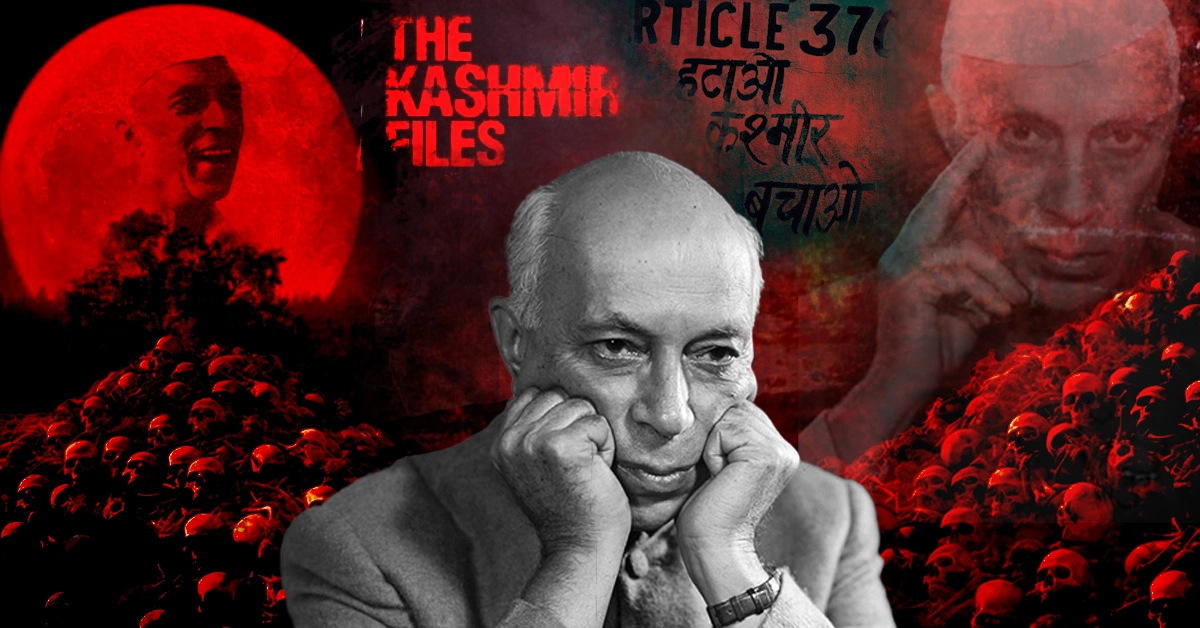Electoral Bonds represented a pivotal shift towards transparency in political financing, aiming to curb the influence of black money in India's democratic process. However, the Supreme Court's decision to invalidate them not only undermines efforts to clean up the system but also serves as a lifeline to the entrenched culture →Read More →
- May 21, 2023
- 09 Mins Read
The Never-Ending Whining Symphony
Today, there exists a group of perpetual critics who seem to have mastered the art of opposing every decision made by Prime Minister Narendra Modi. For these individuals, their preconceived notions and staunch allegiance to a particular ideology cloud their judgment, rendering them unwilling to objectively assess the merits of Modi’s decisions.
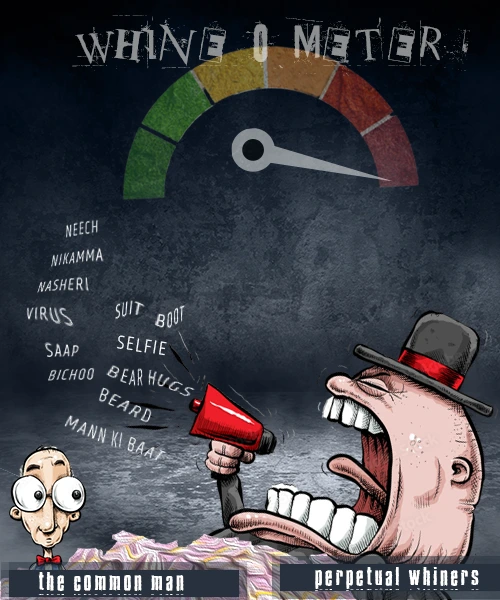
click play to listen to the article
यः सर्वदा द्वेषं धारयति, स एकः मधुरहीनो मधुकरः विचलति।
The one who harbors constant negativity goes astray like a bee without honey
Slow withdrawal of high-denomination currency like ₹2000 is a natural step forward towards increasing digitalization of economy and consumer transactions as well as to curb illegal hoarding of the currency.
“Some, in a Pavlovian response, rushed to buy gold; others spent the weekend pondering over the task at hand. Those who panicked never showed it, and almost everyone agreed that a visit to the bank was a bad idea. These are people with undisclosed ₹2,000 bills – the cash they have to wash and hide in the next four months.” This is how the report from The Economic Times commences by shedding light on the current situation. The ₹2,000 denomination banknote was introduced in November 2016 primarily to meet the currency requirements of the economy in an expeditious manner after the demonetization exercise. The Reserve Bank of India (RBI) announced on May 19, 2023, that it will be withdrawing these ₹2,000 denomination banknotes from circulation, as the original objective of introducing them had been fulfilled and other banknotes in different denominations were readily available in sufficient quantities. The currency will continue to remain a legal tender. There are multiple reasons why this exercise will not affect the common citizens. However, the usual whiners immediately began their wailing, without even considering whether this decision actually affected them.
This is not the first time the RBI has withdrawn notes from circulation. There is a precedent for such an exercise. In January 2014, under the Congress government, the RBI completely withdrew from circulation all banknotes issued prior to 2005. They gave time just till July 1, 2014, post which customers had to submit proof of identity and residence ― most definitely a laborious task compared to the current one. Never did any BJP supporter make it a life and death issue, nor did they crib about it. Under the current exercise, there is time until September 30, 2023 for the people to deposit or exchange these notes. The facilities offered make the entire exercise hassle-free. Customers can exchange ₹2,000 notes worth ₹20,000 at a time. It is crucial to highlight that there are no limitations on depositing ₹2,000 notes into accounts for customers. This implies that individuals have the freedom to deposit any desired amount without any restrictions.
The phasing out of ₹2,000 note was natural corollary to demonetization. The withdrawal wasn’t unexpected either. The writing was on the wall. The RBI had been bringing down the chunk of ₹2,000 notes over years since the period of demonetization. According to RBI data, by volume (number of pieces), from 2.4 per cent of the total currency in circulation in March, 2020, ₹2,000 notes had fallen to 1.6 per cent at the end of March, 2022. In value terms as well, the ₹2,000 notes have fallen from around 37.3 per cent of the total value of currency notes in circulation as on March, 2018 to 10.8 per cent as on March, 2023.
Honest citizens understand that hoarding money for tax evasion or illicit transactions only tarnishes their own conscience and undermines the progress of a just and equitable society. They choose transparency and accountability over short-term gains, knowing that a thriving nation is built on the foundation of ethical conduct and responsible citizenship.
The famous 80-20 rule suggests that even if 80 per cent of the people are legitimately storing their money in ₹2,000 notes, they are likely to be storing only 20 per cent of the overall value. While 20 per cent of those who storing the money in ₹2,000 notes are likely to be hoarders who may account for 80 per cent of the value ~2.9 of 3.62 lakh crores.
The use of the ₹2,000 note as a medium of exchange has declined significantly. Today, it is being used primarily to hoard money. The Economic Times report mentions that gold was sold in the unofficial market for around ₹67,000 (per 10 grams) when paid for with ₹2,000 notes, compared with the official rate of ₹63,800 (including GST). Will honest citizens ever venture into such unofficial markets?
High-denomination notes are increasingly rarely used for legitimate purposes, yet are heavily used by criminals, since they enable large sums of cash to be moved, stored and transacted covertly. Globally there is a trend to abolish high denominations of cash currency in circulation. This follows the policy directions from IMF to FATF which has churned out reports on higher denominations cash being used for criminal activities. The decision to phase out the ₹2,000 notes aligns with international practices as well as with the Modi government’s vision of a digital and cashless economy. It encourages the adoption of electronic payment systems, leading to increased transparency and accountability in financial transactions. By promoting digital transactions, the RBI aims to reduce reliance on cash, improve tax compliance, and enhance financial inclusion, especially among marginalized sections of society. Projections indicate that digital transactions are anticipated to experience a threefold increase by 2026, and the RBI’s decision is poised to provide a significant boost to India’s transition towards a more transparent and sustainable economy. Considering these data or figures, the honest citizen shouldn’t have any issue with this exercise. However, some individuals who persistently propagate negativity towards Modi’s initiatives continue to grumble, despite the positive outcomes indicated by these statistics.
The famous 80-20 rule suggests that even if 80 per cent of the people are legitimately storing their money in ₹2,000 notes, they are likely to be storing only 20 per cent of the overall value. While 20 per cent of those who storing the money in ₹2,000 notes are likely to be hoarders who may account for 80 per cent of the value ~2.9 of 3.62 lakh crores.
The decision to phase out the ₹2,000 notes aligns with international practices as well as with the Modi government’s vision of a digital and cashless economy.
Total number of digital transactions (in crore) rose by 343% from 2,071 in FY18 to 9,192 in FY23. Projections indicate that digital transactions are anticipated to experience another threefold increase by 2026.
Ever since assuming office, Prime Minister Narendra Modi has been no stranger to criticism. Regardless of the issue or decision at hand, there is a segment of the society that seems determined to oppose him at every turn. Whether it was Modi’s pinstriped suit, the auction of which contributed to girls’ education; his foreign tours that elevated India’s global presence; his Mann Ki Baat program, which provided a direct platform for citizens to connect with the Prime Minister; his selfies with dignitaries; his plogging activities; his warm bear hugs; his advocacy for building toilets; or his discussions on women’s health ― numerous actions of this nature were met with a barrage of negativity. Critics of Modi often display a remarkable ability to overlook or downplay the positive outcomes of his decisions. They focus solely on the perceived negatives, conveniently ignoring the progress, improvements, and benefits that may have resulted from a particular policy or action. In addition to revealing the immaturity and narrow-mindedness of these perpetual whiners, this selective approach fails to provide a balanced assessment.
Constructive dialogue, collaboration, and open-mindedness are essential for progress, and the perpetual critics often hinder these crucial elements. While healthy skepticism and constructive criticism are vital components of a vibrant democracy, perpetual and unfounded criticism serves no real purpose. Constantly disapproving every decision that Modi takes without considering the broader context or positive outcomes undermines the constructive dialogue necessary for progress.
Today, there exists a group of perpetual critics who seem to have mastered the art of opposing every decision made by Prime Minister Narendra Modi. Regardless of the issue at hand, these critics staunchly disapprove every decision Modi takes, often without delving into the merits or potential benefits of the decision. For these individuals, their preconceived notions and staunch allegiance to a particular ideology cloud their judgment, rendering them unwilling to objectively assess the merits of Modi’s decisions. This bias leads to a knee-jerk reaction of opposition, with little room for reasoned analysis or open-mindedness. These whiners often resist change simply for the sake of resistance. It reflects their lack of genuine care for the nation. They fail to recognize that progress and development require bold decisions and a willingness to embrace new ideas.
It is imperative to approach criticism with objectivity, open-mindedness, and a genuine desire to contribute to the betterment of the nation. Only then can we move beyond perpetual disapproval and foster an environment that encourages constructive engagement and meaningful change.
Arvind Kejriwal can be seen making promises to the people, only to break them later. He had claimed to be a people’s leader and vowed to behave in a way that would benefit the people, but now appears to be doing the opposite. Kejriwal has also been seen giving advice and guidance to even the President of India, but now he himself seems to be behaving in a manner that is contrary to his own advice. These videos raise questions about Kejriwal’s credibility as a leader and his ability to keep his promises to the people.
Share this article:
Leave a Comment
Recommended For You
It is only in India where the soldier not only fights the enemy but also the politician, the separatist, the journalist, the leftist, the human right activist and an assortment of opinions. It is time we stand together, show our soldier that we are not ungrateful, that we acknowledge and →Read More →
With the passing of the CAA, stormtroopers in the lutyens media appears to have become the purveyor of inflammatory falsehoods with the sole intention of vilifying Narendra Modi. It then becomes necessary to to draw a distinction between truth and propaganda.
Regardless of what Congress led narratives may claim, the reality is clear: Narendra Modi has won. Despite facing an onslaught of deceit and malice from the Congress, Modi defied all odds and secured a healthy majority and emerged victorious!
Rahul Gandhi believes it's his birthright to rule over India. He has a habit of making fabricated allegations beyond facts. Each of his narratives are coated with arrogance and ego and often undermine India's sovereignty. Now it’s for the people of the country to decide if the self-proclaimed monarch should →Read More →
Governments can be criticized and should be criticized. But there is a difference between criticizing governments and attacking India. Attacking India is purely anti-national and deserves the harshest punishment.
Just as the pig revels in its muddy playground, the Congress party seems to derive pleasure from engaging in dirty politics, making it futile to expect a balanced view or any constructive contributions from them. Repeatedly, the Congress party has demonstrated that their sole objective is to acquire power for →Read More →
Prime Minister Narendra Modi’s approach towards national security has been truly transformative. The Surgical Strikes were the first display of political resolve after years of indecisiveness in dealing firmly with threats.
A New India started taking shape under the leadership of Narendra Modi. An India that came out of the cusp of indecisiveness and apathy, to a New India testified by the spirit of change.
Nehru's ego-driven decisions, epitomized by Articles 370 and 35A, unleashed a legacy of discrimination and strife in Jammu & Kashmir. This narrative, marked by betrayal and separatism, inflicted profound suffering on citizens, especially the displaced Kashmiri Pandits. Modi's historic move in 2019, dismantling Article 370, signaled a transformative shift towards →Read More →

